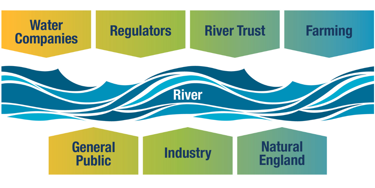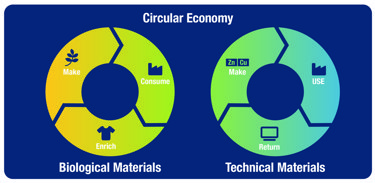Are nature-based solutions the magic bullet for cleaner rivers?
Published: 25 June 2024
By Laura Parnell-Pope, Principal Process Engineer
The press has been awash in the past few years with vitriolic stories about the state of our rivers in the UK. Much of this has been put at the doorstep of the water companies, and, in some instances, rightly so. However, all of us in the water industry are trying desperately hard to protect our precious environment. Nature-based solutions (NBS) are at the forefront of all the water companies proposed plans for AMP8 which are due for Ofwat’s draft determination returns in July. Are these many nature-based solution proposals the magic bullet for our environment that we’ve all been looking for?
Nature-based solutions encompass many solutions from standard reedbeds, to enhanced media (for example the ARMPhos reedbed), to modular reedbeds, lagoons and wetland solutions. However, these solutions are only really appropriate for phosphate (P) consents of 4mg/l or higher, and even then, without the soluble fraction of the phosphate (ortho P) being below the consent threshold, an nature-based solution is never going to reduce levels to the Environment Agency (EA) and Natural Resources Wales (NRW) consents given. Furthermore, many of the new consents are far south of this level, with some as low as 0.25mg/l. These permits have been determined to improve the status of the receiving watercourse, however, rarely is the entire catchment modelled for the entire effect on the river.
To achieve very low P consents, the only solution is to coagulate the effluent using chemicals (typically ferric sulphate). With the correct process optimisation and correct settlement and solids removal, consents less than 0.25mg/l can be achieved. But with the UK already having hundreds of P consents being achieved this way, is the industry ready for thousands more consents to come into force over the AMP8 period? Chemical companies are already warning that there will be a shortage in chemicals. Where does this leave water companies and where does this leave our river quality if the facilities are not available to achieve the consents required?
Is this the whole story though? Surely, if water companies are going to struggle to meet the low consents imposed upon them due to a chemical shortage, then a rethink of the consenting process is required.
Currently there are very few wetlands actually treating effluent within the UK. However, there are dozens being planned soon. Although this is hopeful for a more natural way of treating effluent, the exact route of P (and nitrate) uptake is yet to be explored. It is acknowledged that plants require these elements for growth, but these are in the ppb levels rather than the ppm levels that wastewater consents require. Long term wetland usage may also prove that the only P removal route is through solids settlement rather than actual uptake and removal. Which means that the P is still in the environment and has not changed state and still has a river pollution potential.
As Einstein said – energy cannot be created or destroyed. And this is the same with the determinands we are removing in wastewater treatment. If we remove one element to the standard required from the effluent stream, it is present in high concentrations in the sludge stream (this also goes for upcoming regulated determinands such as PFOS, PFOA and microplastics). Due to the overuse of fertilisers in the farming industry to increase food production yields, the actual need for additional phosphate from sludge spreading in farming is limited, therefore where does this additional P go that water companies are required to remove from the wastewater?
I firmly believe that each catchment needs its own holistic solution, considering all stakeholders that contribute to the state of the environment in that catchment.

The figure above gives just a snapshot of the stakeholders involved. For each catchment, multiple water companies, farmers, industries etc would need to form this quorum so that all elements that affect river (and biodiversity) quality, and then fair share apportionment, are given to each sector.
Diverting P-laden effluents away from the rivers, treatment at source for high P concentration waste streams and a vast reduction in the use of phosphates on the land, would all mean a reduction in wastewater treatment consents. This would, in turn, mean that consents would be within the nature-based solutions range and would be the magic bullet.
This may seem off topic, but again, if we are going to get away from the high-carbon solution of chemical dosing and more into the biodiversity-rich nature-based solution products, then consents need to be increased so we remove less P and therefore have less to put to land.
But this takes us to the circular economy.

And back to a collaborative approach. With all parties contributing to the river catchment, less P will be discharged into wastewater, less will have to be removed from wastewater, and therefore a more natural approach can be adopted. This is not only more sustainable but also the correct and future-proofed answer to our pollution problems.
With the USA bringing in new legislation to regulate PFOA forever chemicals in drinking water, how long is it before the UK also gets these regulations for this to be regulated in wastewater effluent? The AMP7 CIP4 trials have shown that there is a reduction in PFAS and PFOA across the treatment works, but the sink mechanisms are currently unknown. Nature-based solutions can help resolve these issues, and in creating more nature-based solutions on sites, we are also contributing to the new biodiversity net-gain (BNG) regulations recently imposed on the UK.
We all need to think in a more holistic and sustainable manner. We need to all work together. This is everyone’s problem, not just separate sectors in isolation. Therefore, no nature-based solution is not the magic bullet for effluent treatment, but it could be!
See Laura's article published in the Institute of Water magazine.
Latest resources
 Insights
InsightsOfwat’s approach to asset management maturity
 Insights
InsightsA strategic response to the Storm Overflow Assessment Framework version 2
 Case Studies
Case StudiesIndependent assurance verifies robustness of Anglian Water pollution reduction programme
 Case Studies
Case StudiesAssurance transformation plan helps Northumbrian Water meet new reporting requirements
Here to solve your biggest challenges and grow sustainable value
Our expert consultants are available to broaden your thinking, lead transformation, and help you achieve successful outcomes.
Contact our experts

